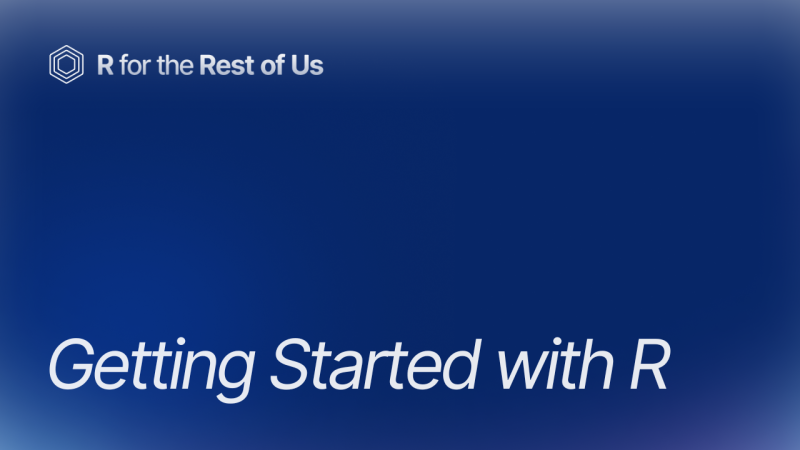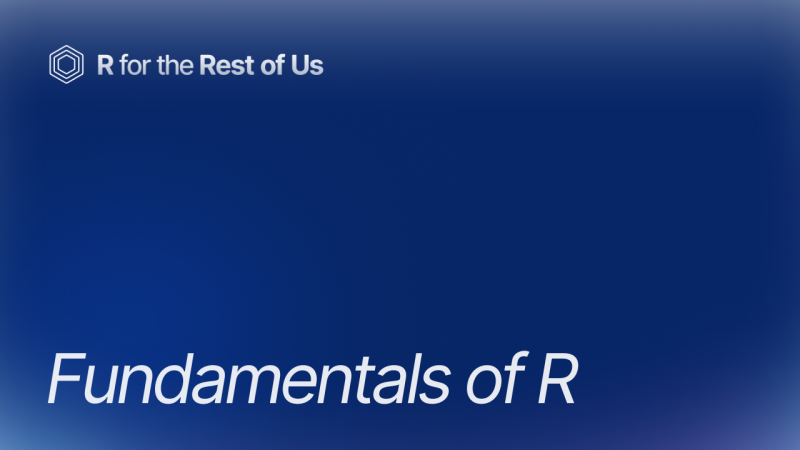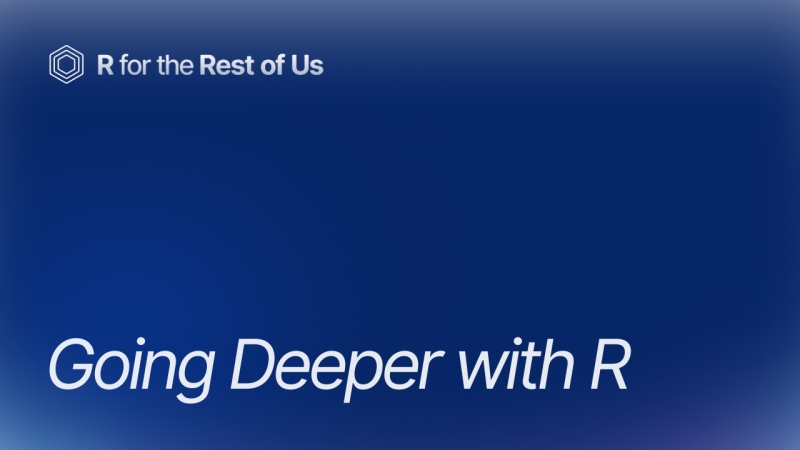Learn to use the most powerful tool for working with data.
Even if you've never coded before.

Supporting forward looking organizations




















New to R?
From "what's R?" to "I love R" in three self-paced courses.
Start here when you're just starting out.
Sign up for the newsletter
R tips and tricks straight to your inbox.
R in 3 Months
Looking for even more? R in 3 Months is a cohort-based program to help you finally learn R.
High-Quality Instruction
With R in 3 Months, you’ll get high-quality instruction that will guide you from R newbie to R expert.
Personalized Feedback
You'll work on your own code every week and get in-depth feedback.
Supportive Community
You'll be on this journey alongside a supportive community that will help you learn and keep you accountable to yourself.
Don't Take it From Us
Our learners say it best.
“Hi! This course is just the simplest way I have found to understand R. Thanks a lot!
“Very good explanations about how to using r, also he doesn't go fast so you can understand way better everything. Highly reccomendated :)
“Before starting R in 3 Months, I had completed several courses on R. However, they all felt generic—focused more on transitioning from learning to simply acing exercise questions, which, in the age of AI, isn't particularly challenging. This course, however, was different. It felt like I was truly in a classroom setting. Even while watching the pre-recorded videos, it struck the perfect balance between self-paced learning and providing the push I needed to stay motivated and engaged. Without a doubt, R in 3 Months is the best course I’ve taken this year.
“This course will be a great intro to get users started with R.
“I am speechless! I have been trying to feel comfortable with R for so many years. I used to spend so much time looking for resources on the internet, trying to put all the pieces together, and I was always defeated. This course is an excellent shortcut to learning R.
“Good quick overview. I'm likely to take more courses from them in the near future. The mapping course looks very interesting.
“Awesome course! It helped me understand the nitty-gritty parts of coding with R that I had struggled with so far. David is an awesome instructor who explains everything in an easily understandable manner. And if you still struggle, there's always the repeat button. :)
“Thank you David for all you do. I am a newbie to data tools, and I've been wearied of them. Though my pace was a bit slow, I did understand and appreciate your style of coaching. I am now able to venture and learn more!.
“This course is a short, clear, and comforting way to get started with R starting with installing the package and opening a dataset to viewing data and defining missings and variable types. I highly recommend it if you plan to start using R.
“Its very useful course for beginner! Thank you so much :)
Ready to Up Your R Game?
For when you've got the foundations down and you're ready to learn more.
Let Us Handle the R
High-quality data visualization, workflow improvements, and custom packages to enable organizations to communicate more effectively and more efficiently.
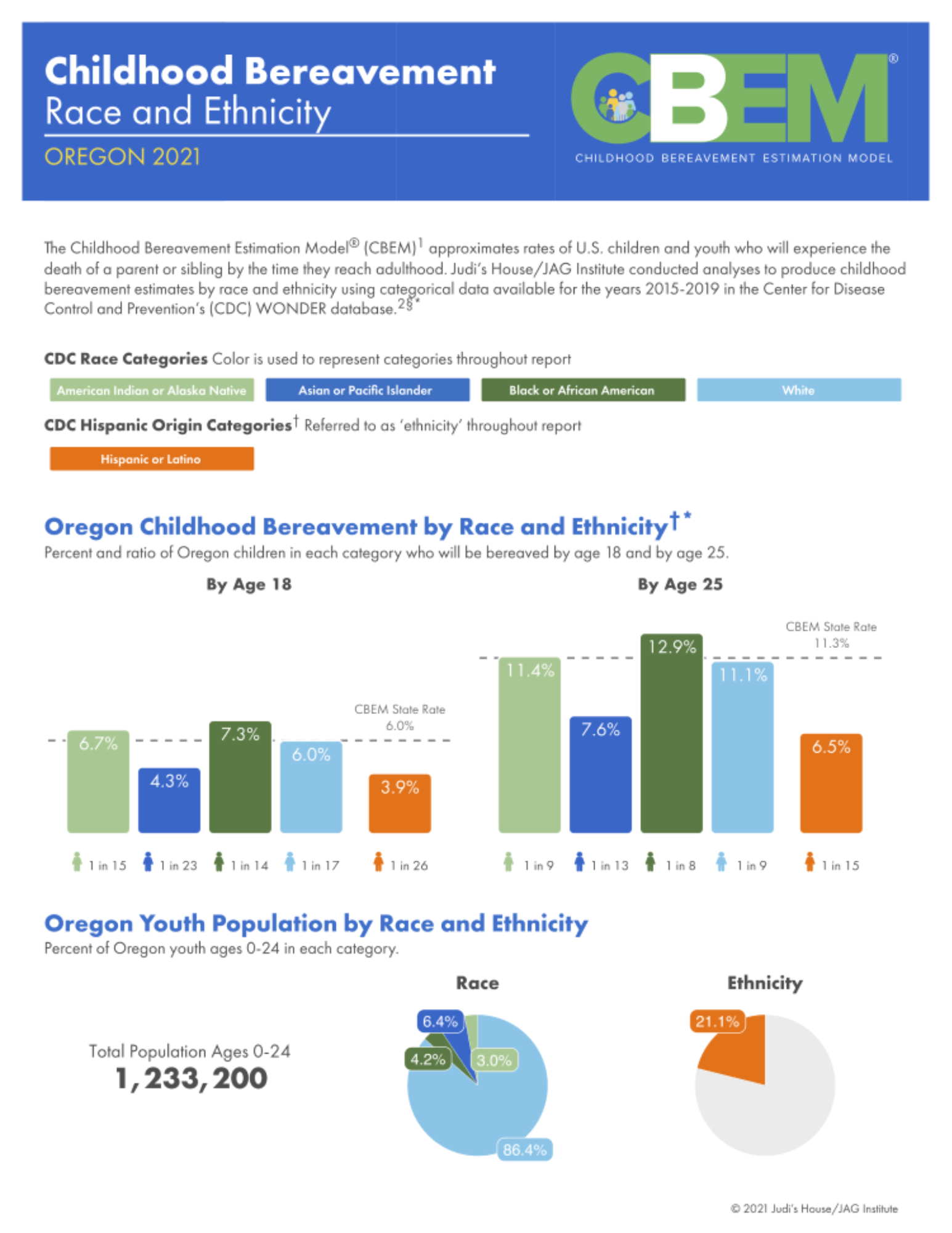
Childhood Bereavement Estimation Model Reports
Judi’s House/JAG Institute, a nonprofit in Colorado, provides support regarding childhood bereavement. In 2018, they created the Childhood Bereavement Estimation Model® (CBEM) to estimate rates of children losing a parent or sibling before adulthood. Annual CBEM reports were produced, but racial and ethnic data breakdowns were lacking until 2021. Partnering with R for the Rest of Us, they generated high-quality, easy-to-understand reports on bereavement disparities by race and ethnicity. These national and state-level reports, created using parameterized reporting and RMarkdown, help advance their vision that no child should be alone in grief.
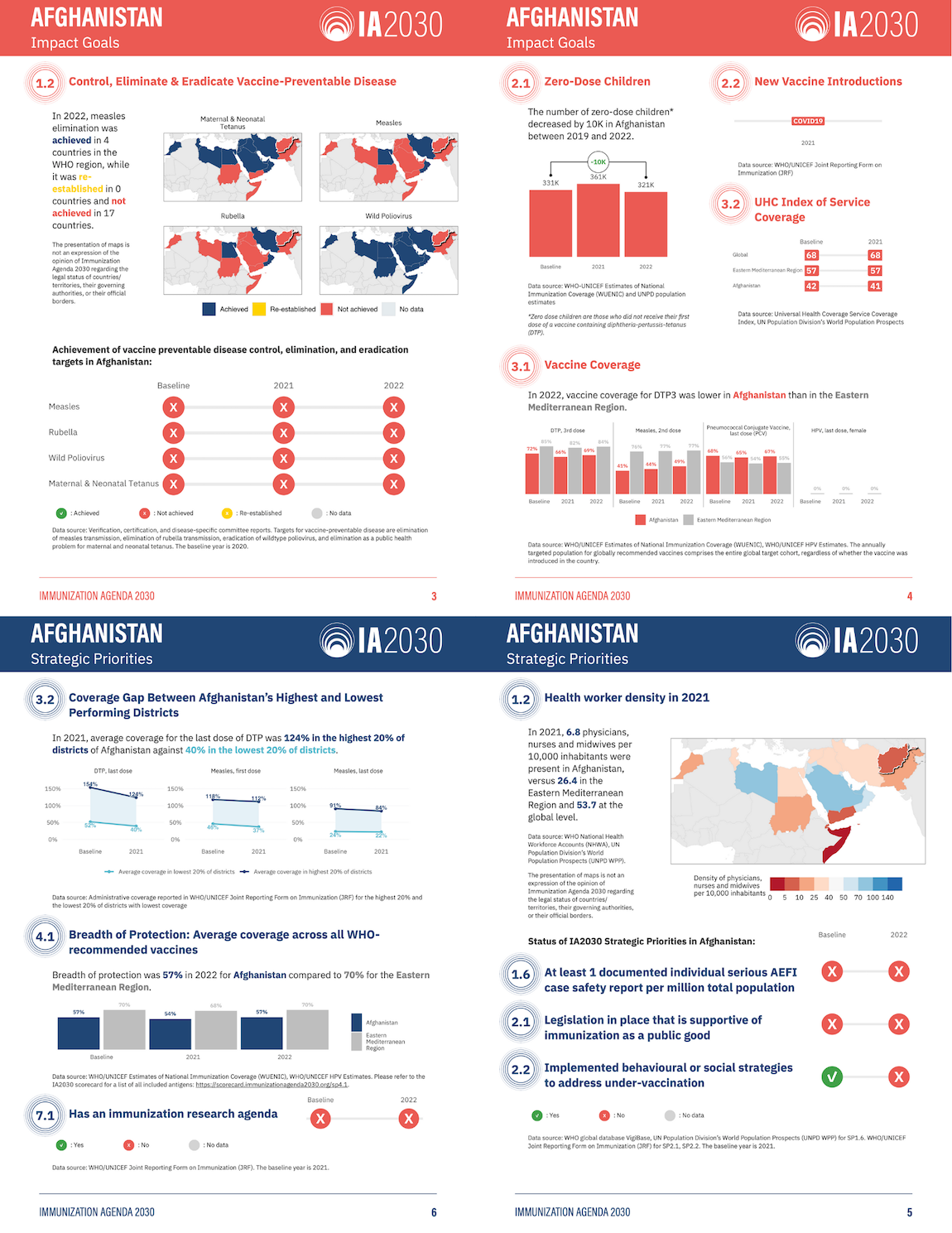
Immunization Agenda 2030 Reports
The World Health Organization's Immunization Agenda 2030 (IA2030) aims to improve global vaccine access. To better report progress, the International Vaccine Access Center at Johns Hopkins University partnered with R for the Rest of Us in 2023. They produced 72 user-friendly country-level reports in English and French, using parameterized reporting. These reports highlight individual country progress, use less technical language than previous online scorecards, and are in a printable PDF format for review.
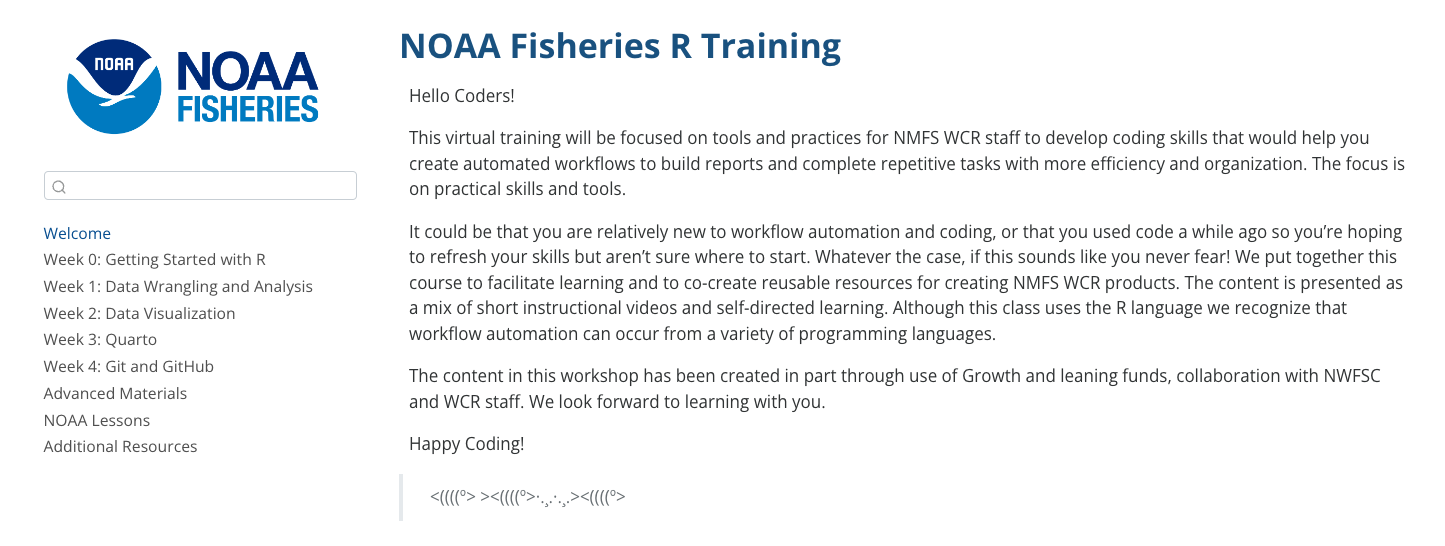
Improving R Training for NOAA Fisheries West Coast Region
Blog
Learn to use the most powerful tool for working with data.
Even if you've never coded before.

How to make heatmaps in ggplot
May 1, 2025
Heatmaps are a common way of representing data. In this blog post, I'll show you how to make your own heatmaps using ggplot. In the process, you'll learn a bit about working with the {sf} package, specifically the st_make_grid() function to make a grid, the st_intersection() function to clip the boundaries of your geography to the grid you create, and st_join() to do spatial joins. This blog post is adapted from a lesson in the Mapping with R course . If you want to learn to make heatmaps...

Use shadows in ggplot to highlight findings
April 24, 2025
In our consulting work, we make a lot of the data visualization for parameterized reporting . It’s something I spoke about in my 2024 Cascadia R Conf talk, How to Make a Thousand Plots Look Good: Data Viz Tips for Parameterized Reporting . One example I gave in this talk came from our work with the Johns Hopkins International Vaccine Access Center and the World Health Organization . In this project, we made reports for the Immunization Agenda 2030 project, which tracks the progress countries...

Create your own custom {ggplot2} theme
April 3, 2025
Creating custom themes in {ggplot2} lets you elevate your data visualizations from standard to standout. Whether you’re aiming for a polished, brand-consistent look for your organization or a unique aesthetic that reflects your personal style, a custom theme function makes it easy to apply your design to all figures with a single line of code. In this tutorial, we’ll cover: the essentials of the powerful ggplot2::theme() function, including how to adjust fonts, colors, sizing, and spacing;...
